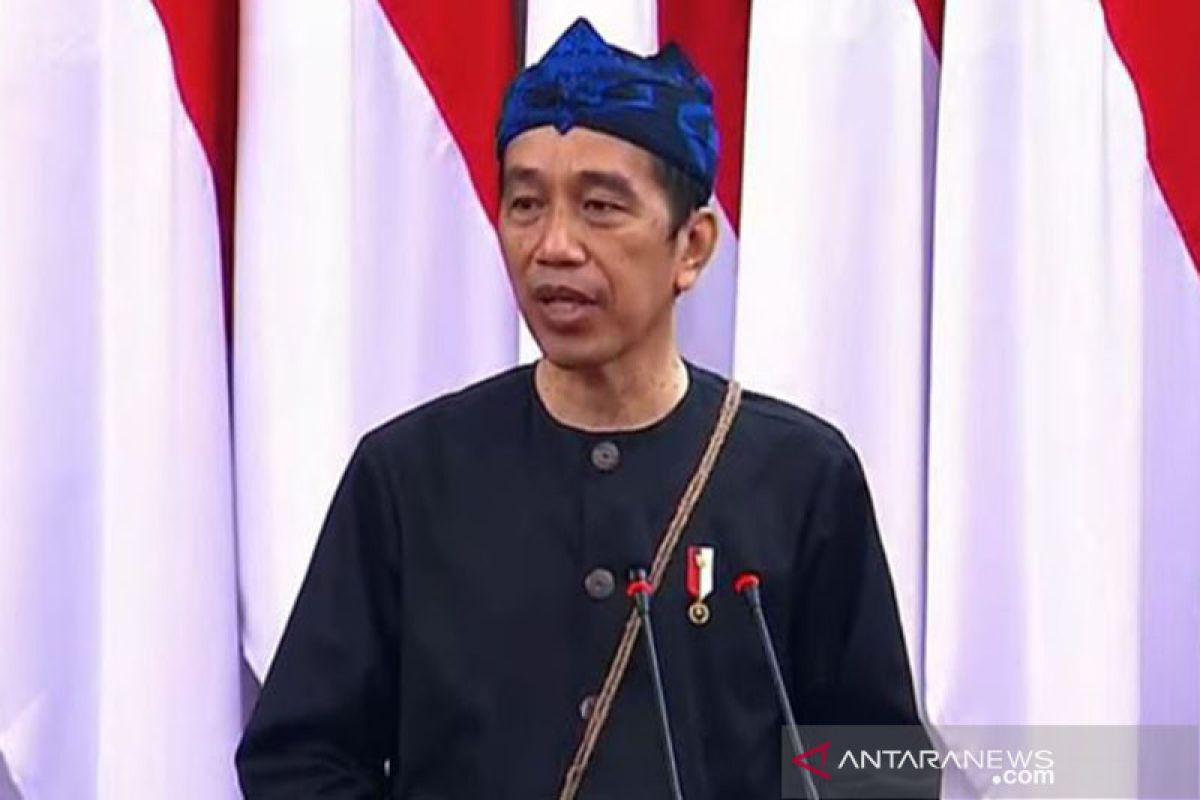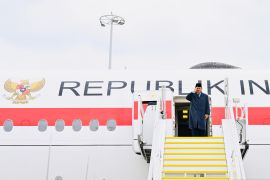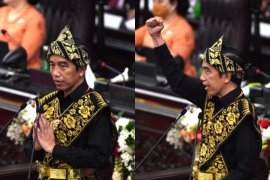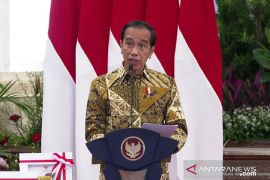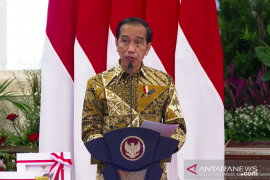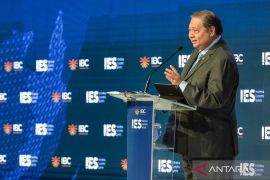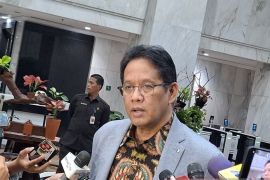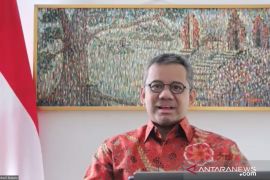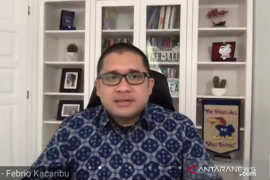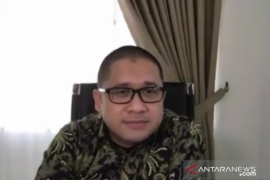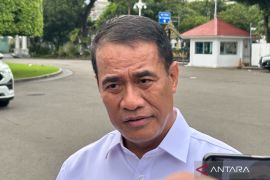"By observing the dynamics of the economy and developments in COVID-19 handling, the fiscal policy architecture must be anticipative and responsive, while maintaining a balance between countercyclical capabilities and risk control efforts so that long-term fiscal sustainability can be maintained," Jokowi said at the presentation of the government's statement on the Bill on the State Budget for the 2022 Fiscal Year and Financial Note in Jakarta on Monday.
The presentation was made following the state address at the annual session of the People’s Consultative Assembly (MPR) and the joint session of the Regional Representative Council (DPD) and the House of Representatives (DPR) on the 76th anniversary of Indonesia's Proclamation of Independence.
In his speech, Jokowi said he believes that fiscal consolidation and reforms need to be continuously carried out in a manner that is comprehensive, gradual, and measurable, and must include strengthening state revenues and improving expenditure as well as prudent and vigilant financing management to realize fiscal management that is more sound, more resilient, and able to maintain future economic stability.
He further said that structural reforms need to also be directed at improving the economic foundation through regulatory and bureaucratic reforms and sectoral support that drives growth even as the government continues to work on its commitment to reducing poverty and inequality.
"Fiscal reforms will also continue to be carried out through revenue optimization, strengthening of quality spending or spending better, and financial innovation," he explained, adding that revenue optimization efforts will be made through potential exploration, tax base expansion, improvement of taxpayer compliance, and asset management optimization, as well as service innovations.
"Thus, the tax ratio can be improved to strengthen fiscal space, while protecting the interests of the common people," he said.
He further said that efforts towards strengthening quality spending are being made through spending control to ensure efficiency, produce a strong multiplier effect on the economy, and make it more effective in supporting priority programs and improving the people’s welfare.
The government's financial innovations are focused on encouraging prudent and flexible funding through more integrated Public-Private Partnerships (PPP) in infrastructure financing, strengthening of the role of the Investment Management Agency, and deepening of the state bond market, he added.
"In addition, the 2022 fiscal policy is also aimed at providing a solid foundation for fiscal consolidation, gearing toward a maximum deficit of 3 percent of gross domestic product (GDP) in 2023," he informed.
At the annual event, the President donned a traditional Baduy tribe ensemble, while Vice President Ma’ruf Amin wore the traditional outfit of the West Sulawesi Mandar tribe.
As it was held amid the COVID-19 pandemic, the annual event took place under strict health protocols, which included a limit on the number of participants. Besides the President and the Vice President, several prominent figures attended the meeting, including DPR Speaker Puan Maharani, DPD Speaker LaNyalla Mattalitti, head of the Supreme Audit Agency (BPK) Firman Sampurna, Chief Justice of the Supreme Court, Muhammad Syarifuddin, Chief Justice of the Constitutional Court, Anwar Usman, and chief of the Judicial Commission, Mukti Fajar Nur Dewanta.
The government’s four Coordinating Ministers, as well as a number of other ministers and the cabinet secretary also participated directly in the meeting, along with the chiefs of the national military and police forces.
Other prominent political figures joined the event virtually, including former presidents and vice presidents, 540 members of the House of Representatives, 124 members of the DPD, 103 ambassadors/representatives of other countries, and 34 governors from all provinces across the country.
Related news: President targets economic growth of 5-5.5 percent by 2022
Related news: Indonesian govt aims for Rp1,840-trillion state revenue by 2022
Related news: 2022 state budget targets expediting social, economic recovery: Jokowi
Translator: Aji C, Aria Cindyara
Editor: Sri Haryati
Copyright © ANTARA 2021
